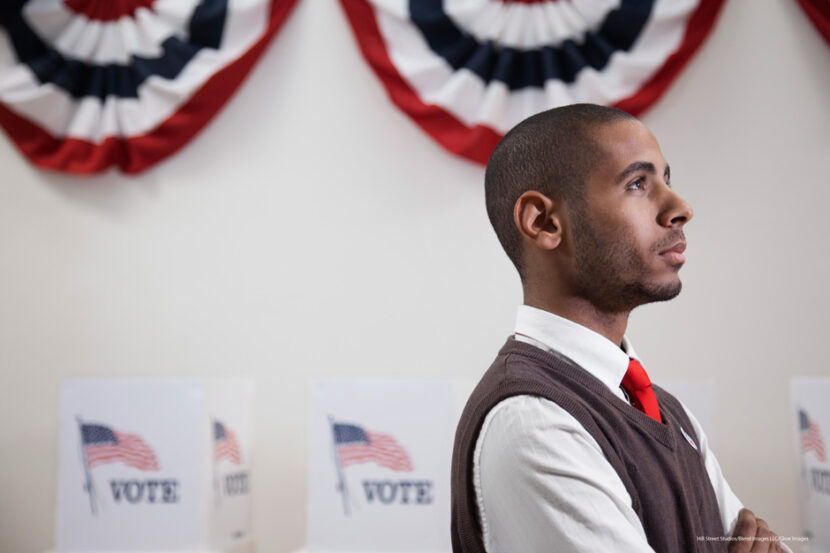- Current Events New Alabama Congressional District Selects Candidates
- Current Events Nebraska Rejects Winner-Take-All Proposal
- Citizenship Voting Under Age 18
- Citizenship Citizenship in Action
- Democratic Party Biden’s and Trump’s Recent Primary Results
- Elections Trump and Biden Win South Carolina and Michigan Primaries
The Price of Politics
It’s no secret that Donald Trump has changed the political playing field. In fact, in the recent May primaries, it often seemed like most of the candidates spent more time defining themselves by whether or not they agreed with Trump than they did discussing their policies. Here, we consider yet another way that Trump has influenced the upcoming midterm election by taking a look at campaign donations.
A Little Goes a Long Way
There are two main groups that contribute to political candidates: small donors, who pledge $200 or less, and large donors, which are corporations or PACs (political action committees) that contribute much larger sums. In fact, PACs have no limit on the amount of money they are allowed to contribute, while non-PAC donors are capped at $2,700 per election.
So how has Trump affected this? In Republican races, we see a lot of large corporate and PAC donations. This year, however, Democratic candidates are receiving an unusually large surge in small donations. In fact, many Democrats have refused corporate donations altogether and are still pulling in nearly as much funding as their Republican counterparts, just from small donations alone.
Good News for the Democrats?
Some candidates believe that many small donations are better than a few large ones, because individual campaign donations–even if it’s just a few dollars–is a direct signal of a voter’s support. In other words, the more individual donations, the more estimated votes . . . and often, the more campaign volunteers as well. So Democrats are excited about the overwhelming number of small donations they are suddenly bringing in to their campaigns.
But here’s the problem, and why Democrats aren’t celebrating just yet. Backlash against Trump has also caused thousands of new, first-time candidates to run, often on the Democratic ticket. While these new candidates are energetic and motivated, the only problem is that there are a lot of them. This means that all of those new candidates are often spending that new collection of donated money battling other Democrats in primaries. Democrats who spent the past nine months or so beating the five or six other Democrats in their race will often have close to nothing left in their bank accounts when it comes time to switch gears and battle the Republican candidate. Meanwhile Republicans, who often don’t have any other Republican running against them in the primary, can then turn their full attention–and full wallet–to defeating the Democrat.
Also, let’s not forget about PACs. At any minute, a large PAC donation could come in and change the tide of an entire race.
A New Wave
Even so, the recent rise in small donations is exciting for Democrats. Many of the people contributing small amounts of money are first-time donors who have never pitched into a political race before. Many of them are also younger. So no matter how Democrats fare overall in the upcoming 2018 midterms, there is a large base of young, energized supporters who are eager to help out candidates and get involved in political races.
That’s not just good for Democrats. That’s good for the whole democracy.



